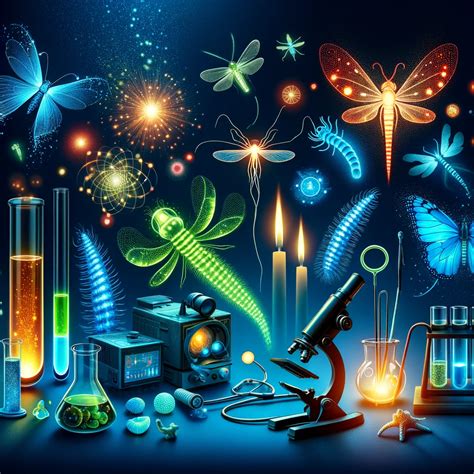Introduction
Chemistry, the study of matter and its properties, is a fundamental science that has shaped our understanding of the universe. From the interactions of atoms to the composition of stars, chemistry plays a vital role in shaping our world. The chemistry lab is the hub where these discoveries are made, providing a controlled environment for experimentation, analysis, and innovation.

The Importance of Chemistry Labs
Chemistry labs serve as crucial facilities for scientific research, education, and technological advancements. They provide students with hands-on experience, allowing them to apply theoretical concepts and develop practical skills. Moreover, chemistry labs empower researchers to explore new materials, synthesize compounds, and investigate chemical reactions. By fostering a collaborative environment, chemistry labs accelerate innovation and contribute to the advancement of science.
Economic Impact
According to the American Chemical Society, the chemical industry accounted for approximately $562 billion in value-added in the United States in 2022. Chemistry labs play a pivotal role in developing new products, optimizing processes, and ensuring quality control, ultimately driving economic growth and job creation.
Environmental Applications
Chemistry labs are essential for addressing environmental challenges. Researchers use these facilities to develop new methods for pollution control, waste management, and renewable energy production. By analyzing environmental samples, chemists identify contaminants and devise strategies to mitigate their impact.
Healthcare Advancements
Chemistry labs are at the forefront of pharmaceutical development. Scientists synthesize new drugs, conduct clinical trials, and analyze drug interactions. These efforts have led to significant advancements in treating diseases, improving patient outcomes, and extending life expectancy.
Benefits of a Well-Equipped Chemistry Lab
Investment in a well-equipped chemistry lab brings numerous advantages:
- Enhanced Learning: Hands-on experimentation in a chemistry lab reinforces theoretical concepts and develops critical thinking skills.
- Improved Research Capabilities: State-of-the-art equipment empowers researchers to conduct advanced experiments, explore new areas of chemistry, and make groundbreaking discoveries.
- Innovation Hub: Chemistry labs provide a platform for collaboration and idea generation, fostering the development of innovative products and processes.
- Economic Competitiveness: Access to a well-equipped chemistry lab attracts skilled researchers, promotes industrial partnerships, and supports economic growth.
Planning a Chemistry Lab
Designing and equipping a chemistry lab requires careful planning. Here are key considerations:
- Safety: Ensure the lab adheres to strict safety protocols, including adequate ventilation, emergency showers, and proper disposal procedures.
- Equipment: Choose high-quality equipment that meets the specific needs of the lab, such as spectrophotometers, microscopes, and analytical balances.
- Space Planning: Allocate sufficient space for experiments, storage, and equipment maintenance. Consider the flow of movement and ensure efficient workspace utilization.
- Sustainability: Implement sustainable practices, such as energy-efficient lighting, water conservation, and proper waste management.
Top-Notch Chemistry Labs Around the World
Several universities and institutions worldwide boast cutting-edge chemistry labs, including:
- University of California, Berkeley: Home to the Chemical Sciences Building, a state-of-the-art facility with advanced instrumentation for research in catalysis, materials science, and biochemistry.
- ETH Zurich: The Department of Chemistry and Applied Biosciences operates a modern facility equipped with high-resolution mass spectrometers, NMR spectrometers, and laser systems.
- National Chemical Laboratory of India (NCL): A premier research institute with a well-equipped lab for chemical synthesis, catalysis, and materials characterization.
Future of Chemistry Labs
Advancements in technology are shaping the future of chemistry labs:
- Automation: Automated systems will enhance efficiency, reduce human error, and enable complex experiments 24/7.
- Miniaturization: Microfluidic devices and nanotechnology will allow for smaller-scale experiments, faster analysis, and improved accuracy.
- Computational Chemistry: Sophisticated software will aid in molecular modeling, reaction optimization, and drug design.
- Citizen Science: Crowdsourcing platforms will engage the public in chemistry research, fostering scientific literacy and innovation.
Conclusion
The science chemistry lab remains a vital hub for scientific discovery, innovation, and education. By providing a controlled environment for experimentation and analysis, chemistry labs empower scientists to unlock the secrets of the material world. Investing in well-equipped chemistry labs is essential for driving economic growth, addressing environmental challenges, and advancing healthcare. As technology evolves, the future of chemistry labs promises even greater possibilities and breakthroughs, shaping the future of science and society.
FAQs
1. What is the role of a chemistry lab technician?
Chemistry lab technicians assist scientists in conducting experiments, maintaining equipment, and analyzing data.
2. What are the safety precautions to be followed in a chemistry lab?
Always wear personal protective equipment, handle chemicals with care, follow proper disposal procedures, and be aware of potential hazards.
3. What are some emerging applications of chemistry?
Emerging applications of chemistry include nanotechnology, biotechnology, green chemistry, and computational chemistry.
4. How can I get involved in chemistry research?
Contact universities or research institutions, join a chemistry club, or participate in science fairs and competitions.
5. What is the difference between a chemistry lab and a biochemistry lab?
A chemistry lab focuses on the study of matter and its properties, while a biochemistry lab investigates the chemical processes that occur in living organisms.
6. What is the future of chemistry labs?
Chemistry labs will become more automated, miniaturized, and computational, enabling even more advanced research and innovation.
7. What is the approximate cost of setting up a chemistry lab?
The cost of setting up a chemistry lab varies depending on the size, equipment, and location, but can range from hundreds of thousands to several million dollars.
8. What are some examples of groundbreaking discoveries made in chemistry labs?
Breakthrough discoveries made in chemistry labs include the structure of DNA, the synthesis of new materials, and the development of life-saving drugs.
